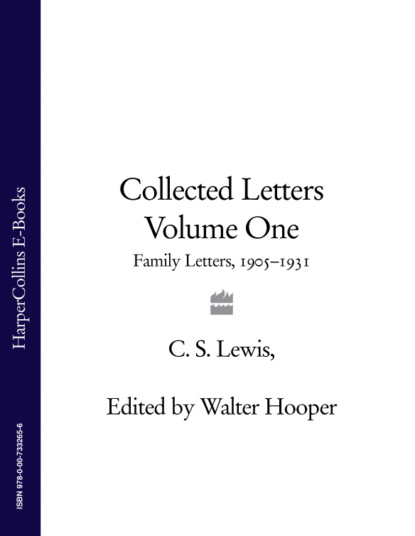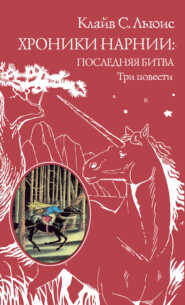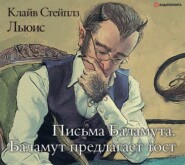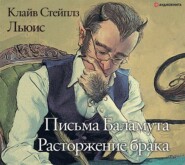По всем вопросам обращайтесь на: info@litportal.ru
(©) 2003-2024.
✖
Collected Letters Volume One: Family Letters 1905–1931
Настройки чтения
Размер шрифта
Высота строк
Поля
Apparently, however, the old man was holding his fire. We shook hands, and though his grip was like iron pincers it was not lingering. A few minutes later we were walking away from the station. ‘You are now,’ said Kirk, ‘proceeding along the principal artery between Great and Little Bookham.’ I stole a glance at him. Was this geographical exordium a heavy joke? Or was he trying to conceal his emotions? His face, however, showed only an inflexible gravity. I began to ‘make conversation in the deplorable manner which I had acquired at those evening parties and indeed found increasingly necessary to use with my father. I said I was surprised at the ‘scenery’ of Surrey; it was much ‘wilder’ than I had expected.
‘Stop!’ shouted Kirk with a suddenness that made me jump. ‘What do you mean by wildness and what grounds had you for not expecting it?’ I replied I don’t know what, still ‘making conversation. As answer after answer was torn to shreds it at last dawned upon me that he really wanted to know. He was not making conversation, nor joking, nor snubbing me; he wanted to know. I was stung into attempting a real answer. A few passes sufficed to show that I had no clear and distinct idea corresponding to the word ‘wildness’, and that, in so far as I had any idea at all, ‘wildness’ was a singularly inept word. ‘Do you not see, then,’ concluded the Great Knock, ‘that your remark was meaningless?’…By this time our acquaintance had lasted about three and a half minutes; but the tone set by this first conversation was preserved without a single break during all the years I spent at Bookham…If ever a man came near to being a purely logical entity, that man was Kirk…Some boys would not have liked it; to me it was red beef and strong beer.
TO HIS FATHER (LP IV: 212):
[Gastons,
Great Bookham,
Surrey]
Sept. 21st [1914]
My dear Papy,
I arrived, as you heard by the telegram, at Great Bookham in perfect safety and with all my effects. Today is Monday and you must excuse my not writing yesterday as some friends of Mine Host’s called in the afternoon when I had intended to do this.
Need I say how thoroughly satisfied I am with Bookham, Gastons, and their inhabitants. You already know all about Kirk–more than I do probably–and W. has spoken of Mrs. K., whom I like exceedingly.
The country is absolutely glorious. I took my first tour of exploration this afternoon, and went through the outskirts of a large forest. One was strongly reminded of ‘As you like it’.
(#ulink_cb0ae108-b25d-5040-bcb8-e8da9851f9f0) The village is one such as I have often read of, but never before seen. The little row of red roofed cottages, the old inn, and the church dating from the Conquest might all have stepped out of the Vicar of Wakefield.
(#ulink_4924f4a9-d575-57d8-816d-34e44f6b68c5) How Arthur would enjoy this place!
Another point of gratification is that I have at last, triumphantly, found a dirtier railway than the Co. Down. (I wonder have you any shares in the London & S. Western?) Kirk’s son,
(#ulink_76bce637-f5d7-5865-ae61-a7484a768fdf) who is in a volunteer camp near here called for an hour or so last night. We get the ‘Whig’ here, which gives a touch of home. I hope you are keeping in good health and spirits and letting Tim sleep indoors. Of course there are sewing meetings and all the usual war codotta at Bookham. To finish up–it is a brilliant success.
your loving
son Jack
P.S. Any signs of the photos? J.
TO ARTHUR GREEVES (W/LP IV: 212-13):
‘Gastons’
Grt. Bookham.
Surrey.SaturdaySept / 14 26 September 1914]
My dear Arthur,
If it were not that you could answer me with my own argument, I should upbraid you with not having written to me. See to it that you do as soon as you have read this.
And now–what do I think of it? After a week’s trial I have come to the conclusion that I am going to have the time of my life: nevertheless, much as I am enjoying the new arrangement, I feel sure that you would appreciate it even more than I. As for the country, I can hardly describe it. The wide expanse of rolling hill and dale, all thickly wooded with hazel and pine (so different from our bare and balder hills in Down) that is called Surrey, is to me, a great delight. Seen at present, in all the glory of a fine Autumn, it may be better imagined than described. How I wish that I could paint! Then I could carry home a few experiences on paper for my own remembrance and your information. But the village wd. please you even better. I have never seen anything like it outside a book. There is a quaint old inn that might have stepped out of the ‘Vicar of Wakefield’, and a church that dates from before the conquest. But it is no good enumerating things: I cannot convey the impression of perfect restfulness that this place imparts. We have all often read of places that ‘Time has forgotten’–well, Great Bookham is one of these!
I have only just discovered that you put my name in that book.
(#ulink_42f9f50f-54b6-5ca6-86af-3b4ad2ea7d35) If I had seen it earlier I shd. have sent it back. You have no right to be so foolishly generous! However–many, many thanks. When one has set aside the rubbish that H. G. Wells always puts in, there remains a great deal of original, thoughtful and suggestive work in it. The ‘Door in the Wall’, for instance, moved me in a way I can hardly describe! How true it all is: the SEEING ONE walks out into joy and happiness unthinkable, where the dull, senseless eyes of the world see only destruction & death. ‘The Plattner Story’ & ‘Under the Knife’ are the next best: they have given me a great deal of pleasure. I am now engaged in reading ‘Sense & Sensibility’. It is, undoubtedly, one of her best. Do you remember the Palmer family?
(#ulink_c9cb3aaa-c821-5c06-b357-b30f88a748e9)
In Greek, I have started to read Homer’s Iliad,
(#ulink_73056eee-fe22-5a96-b03a-92b8621d640f) of which, of course, you must often have heard. Although you don’t know Greek & don’t care for poetry, I cannot resist the temptation of telling you how stirring it is. Those fine, simple, euphonious lines, as they roll on with a roar like that of the ocean, strike a chord in one’s mind that no modern literature approaches. Better or worse it may be: but different it is for certain.
I hope everything went off successfully on the eventful Teusday, and also that you are now recovered from your cold. You know my address: you have no excuse for silence, Sir!! No Philip’s concerts this year at Belfast, I am told.
Yrs. (Expecting a letter)
C. S. Lewis
TO HIS FATHER (LP IV: 214):
[Gastons]
Monday.
Postmark: 30 September 1914
My dear Papy,
Thanks very much for the two letters which I received all in due course. Yes: I think that will be the best plan about the photos. Only, please send me two copies, as I want to give one to some one else at Malvern.
I am now at the end of my first week at Bookham, and can again tell you that it is everything that can possibly be desired. Both in work and leisure it is of course incomparably beyond any of the arrangements we have tried yet.
This week end an old pupil and friend of Kirk’s was staying with us–one Oswald Smythe, who hies from Bembridge and is about twenty five years of age. Do you know who that would be? We are going on with friend Homer at what–to my ex-Malvernian mind–is a prodigious rate: that is to say we have polished off a book in the first week. At Malvern we always took a term to read a book of that sort of stuff.
Today I did a thing that would have gladdened your heart: walked to Leatherhead (for Bookham does not boast a barber) to get my hair cut. And am now looking like a convict–Yes thanks I have plenty of underclothing, and the cold is a good deal better!
There is a good deal of war fever raging here, as is natural. I am glad to hear that those ‘five righteous’ have been found. But five thousand would be more to the point. What is all the local news? Tell Arthur the next time you see him that I am eagerly expecting a reply to my letter. I suppose the winter has closed in at home by this time: but we are still having quite summer weather here–which I rather resent. Mrs. Kirk plays the piano beautifully, which is one of the great assets of Bookham. There is also a movement on foot to make me learn to play bridge: but I am wriggling as hard as is compatible with manners.
your loving
son Jack
P.S. Who is the ‘Mr. Dods’
(#ulink_258ef53d-a07b-500c-bc2b-ac651ee99c3b) that Kirk mentions?
War had been building up for some time, and it was now imminent. The heir to the Hapsburg empire, Archduke Franz Ferdinand, was assassinated in Sarajevo on 28 June 1914. Linking the assassination to the government of Belgrade, on 23 July Austria despatched to Serbia an ultimatum which could only be answered in two ways: Serbia must become for all practical purposes a conquered province of the Austrian Empire, or it must accept a declaration of war. On 28 July Austria declared war on Serbia, and on 29 July Russia mobilized her south-western army. That same day in London, Winston Churchill proposed to the British Cabinet that the European sovereigns should ‘be brought together for the sake of peace’.
(#ulink_ac7a6b57-bf50-5f9a-85e6-2e63c9529561) Germany refused, and on 31 July Russia mobilized against Germany. That same day Britain asked France and Germany to respect Belgian neutrality, to the maintenance of which Britain was committed by a treaty signed in 1839. France agreed to do so, but Germany gave no answer. Then, on 3 August Germany declared war on France. Hitherto Britain had stood aside, but the question of Belgian neutrality raised a problem and on 3 August Britain sent an ultimatum to Berlin demanding there be no attack on Belgium. On 4 August Germany entered Belgium, and that night Britain declared war on Germany. By midnight on 4 August five empires were at war: the Austro-Hungarian Empire against Serbia; the German Empire against France, Britain and Russia; the Russian Empire against Germany and Austria-Hungary; and the British and French Empires against Germany.
Because of war-time needs, Warnie’s training had been accelerated from two years to only nine months. On 1 October he was commissioned a 2nd lieutenant in the Army Service Corps and sent to the base at Aldershot in preparation for being sent to France on 4 November.

















